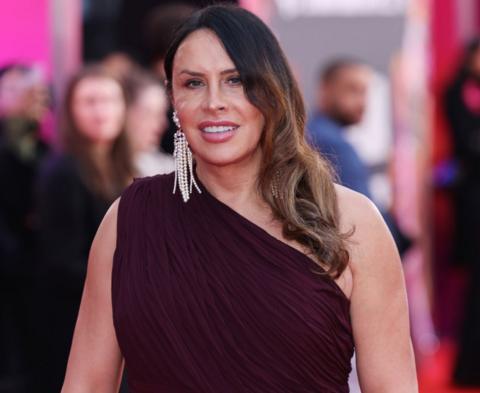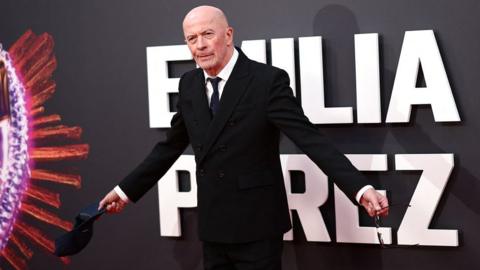Interestingly, Gascón campaigned to play both the male and female roles – in other words, the character both before and after transition.
Audiard had originally intended for a different actor to play the male drug lord Manitas, because, the director explains, he was "uncomfortable asking [Gascón] to revisit something she was moving away from".
But, Gascón recalled: “I said to Jacques, I want to play this role in the complete arc, because for me it is important to do the full part. It wouldn't be the same film if another actor played [Manitas]."
That meant using effects and make-up such as a fake beard, so she could play the drug baron in the first section of the musical.
"This film is this film because the same actress played the complete performance," Gascón continues. "It's that kind of role you have once in your life and I didn't want to lose the opportunity to play this.”
The ongoing debate about whether actors should have lived experience of characters they play is complex, and Gascón herself says: "I prefer that all actors have the full opportunities. When you chose this career, it's because you want to express another life that's not like your life.
"But," she continues, "obviously when you are closer to the role of the character, it's better. In this case, I think it's beautiful, because I give all of myself to this role."
Gascón has been described as a "wonderful discovery" by the Hollywood Reporter's David Rooney, who said she gives "a magnificent performance".
"The warmth, the joyous self-realisation, the complexity and authenticity... that illuminate her characterisation no doubt owe much to the parallels in the Spanish star’s life - in her own words, she was an actor before becoming an actress, a father before becoming a mother."








